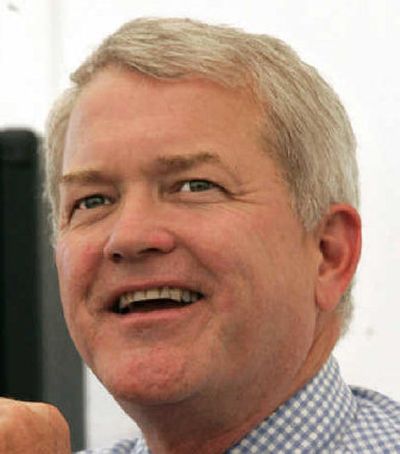Hastert allegedly told of e-mails in spring

WASHINGTON – House Speaker Dennis Hastert, R-Ill., was notified earlier this year of inappropriate e-mails from former Rep. Mark Foley, R-Fla., to a 16-year-old page, a top GOP House member said Saturday – contradicting the speaker’s assertions that he learned of concerns about Foley only last week.
Hastert did not dispute the claims of Rep. Thomas Reynolds, R-N.Y., and his office confirmed that some of Hastert’s top aides knew last year that Foley had been ordered to cease contact with the boy and to treat all pages respectfully.
Reynolds, chairman of the National Republican Congressional Committee, became the second senior House Republican to say that Hastert has known of Foley’s contacts for months, prompting Democratic attacks about the GOP leadership’s inaction. Foley abruptly resigned his seat Friday.
House Majority Leader John Boehner, R-Ohio, told the Washington Post on Friday that he learned in late spring of inappropriate e-mails Foley sent to the Louisiana boy and said he promptly told Hastert, who appeared to know already of the concerns. Hours later, Boehner contacted the Post to say he could not be sure he had spoken with Hastert.
Saturday’s developments revealed a rift at the highest echelons of House Republican ranks a month before the Nov. 7 election, and they threatened to expand a scandal to a full-blown party dilemma.
Only after Reynolds’ definitive statement did Hastert concede Saturday that he may have been notified of some of the questionable activities of Foley, 52, who had co-chaired the House caucus on missing and exploited children. Hastert said, however, that he knew nothing of the sexually explicit instant messages that became public Friday when ABC News and other news outlets reported them. The messages apparently were exchanged with youths other than the 16-year-old.
Hastert’s aides learned in the fall of 2005 only of e-mail exchanges that House officials eventually deemed “over-friendly” with the Louisiana teenager, the speaker’s office said Saturday in a lengthy statement. “While the Speaker does not explicitly recall this conversation” with Reynolds, the statement said, “he has no reason to dispute Congressman Reynolds’ recollection that he reported to him on the problem and its resolution.”
Boehner and Reynolds said their offices learned of the Foley e-mails months ago from Rep. Rodney Alexander, R-La., who sponsored the page from his Northeast Louisiana district.
“Rodney Alexander brought to my attention the existence of the e-mails between Mark Foley and a former page of Mr. Alexander’s,” Reynolds said Saturday. “Despite the fact that I had not seen the e-mails in question, and Mr. Alexander told me that the parents didn’t want the matter pursued, I told the speaker of the conversation Mr. Alexander had with me.”
Republican insiders said Reynolds spoke out because he was angry that Hastert appeared willing to let him take the blame for the party leadership’s silence about concerns raised last year regarding Foley’s interactions with the teenager.
A House GOP leadership aide, who spoke on condition of anonymity for fear of losing his job, said Reynolds realizes he has taken a shot at his top leader, but it was understandable.
“This is what happens when one member tries to throw another member under a bus,” the aide said.
Foley’s actions have jeopardized a House seat that Republicans had considered safe this fall. Sen. John Kerry, D-Mass., headlined a fundraiser Saturday for the district’s Democratic nominee, Tim Mahoney, whose race has rocketed to national prominence with Foley’s resignation. Charlie Cook, editor of a nonpartisan newsletter that tracks congressional races, said that if Foley’s name stays on the ballot, “it’s going to be hard for Republicans to hold on to the seat.” But a GOP loss might last only two years, he said, since the district votes Republican in presidential races.